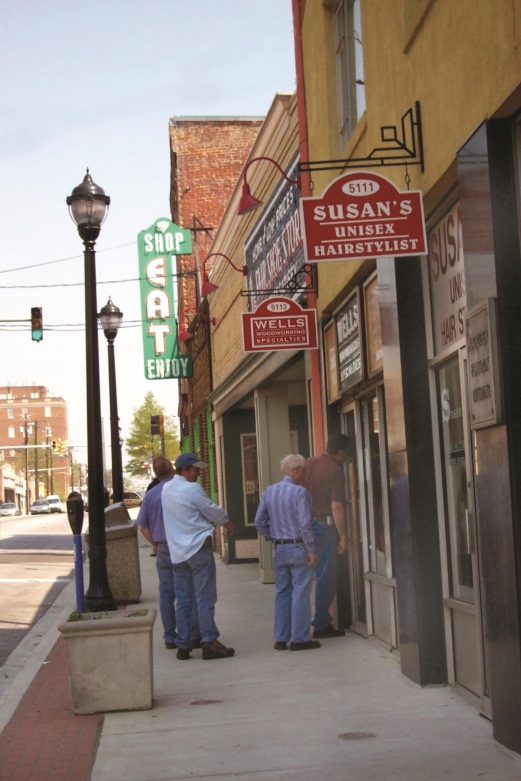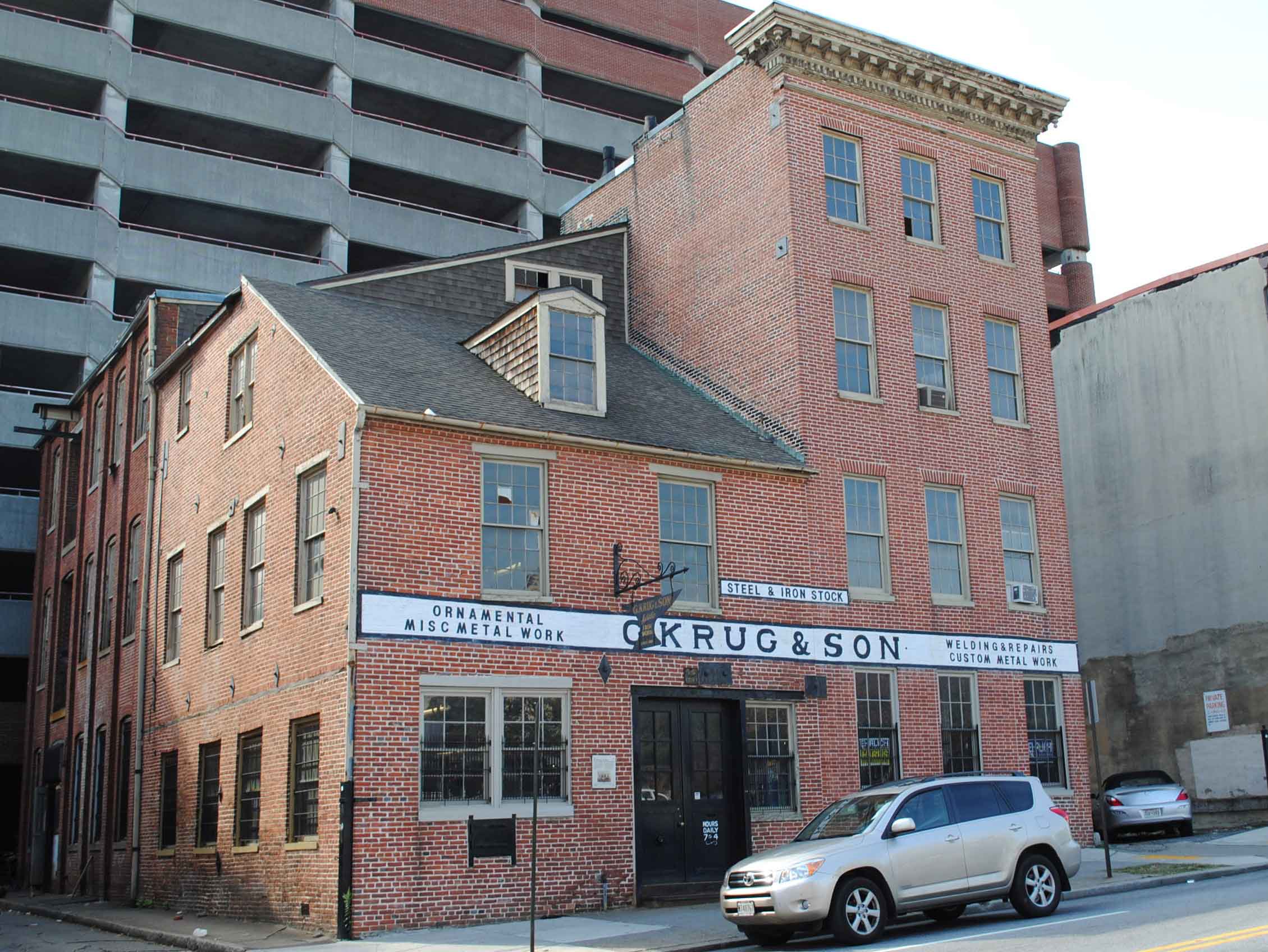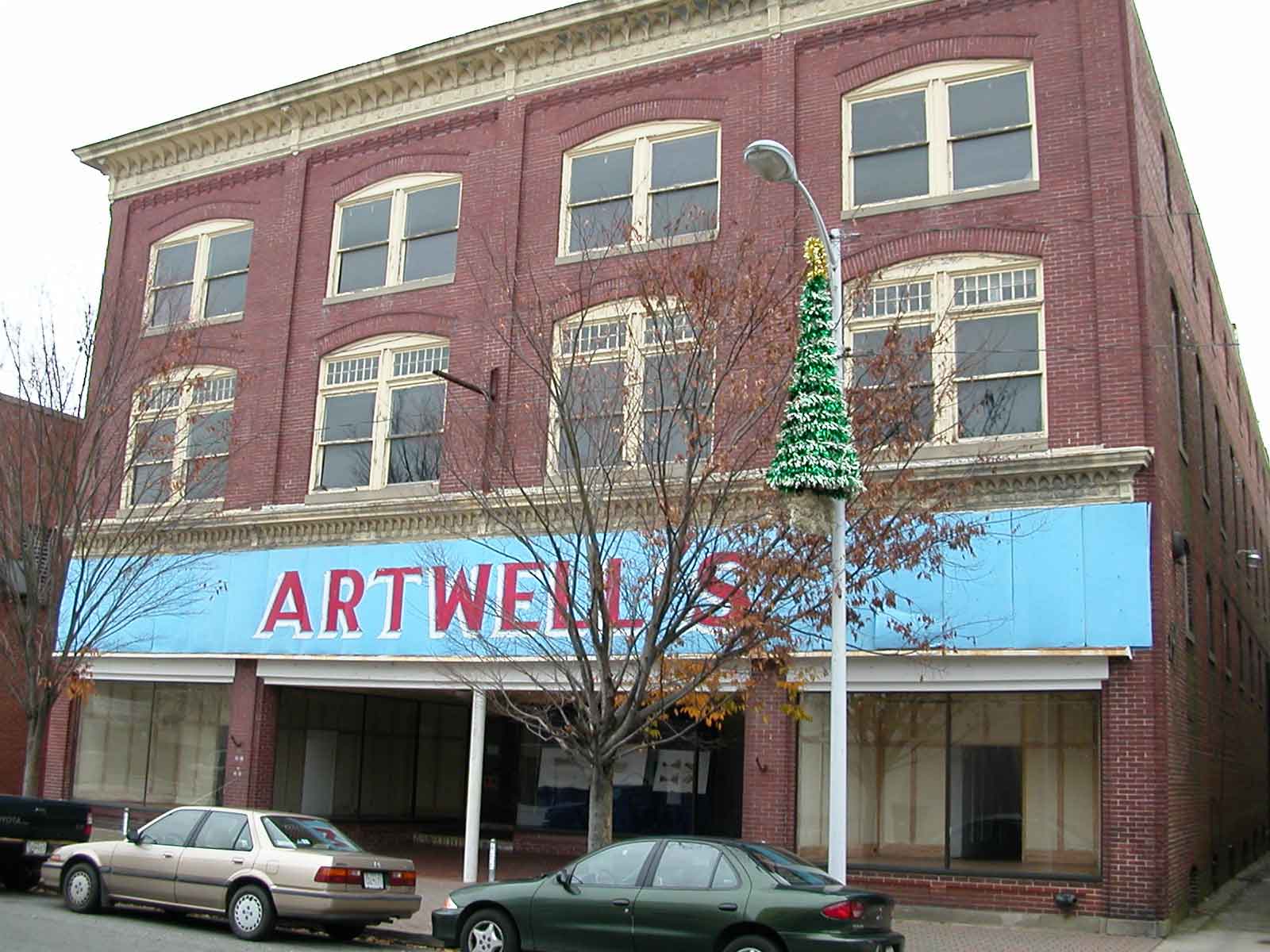 Shops in Hyattsville.
Shops in Hyattsville. The Maryland Historical Trust will accept applications for small commercial projects on a first-come, first-served rolling basis until the program cap of $2 million for the current fiscal year has been reached. Eligible projects may earn a state income tax credit equal to 20 percent of qualified rehabilitation expenditures.
Small commercial rehabilitations are defined as projects that do not exceed $500,000 in total qualified rehabilitation expenses. The credit is capped at $50,000 in a 24-month period and must have a minimum of $5,000 of eligible expenses to qualify. Projects in a qualified Opportunity Zone may be eligible for additional tax credits.
The state small commercial tax credit may be used with federal and local historic tax credits. Federal applications are reviewed by MHT in coordination with the National Park Service and should be submitted simultaneously for a streamlined review. MHT review is independent of local review and may not be waived or substituted for local approval. Please contact your county or municipality for more information about local tax credits.
Consultation may be appropriate for comprehensive and significant rehabilitation projects. Prospective applicants are encouraged to contact MHT tax credit staff early in the planning process. Early communication allows MHT the opportunity to provide useful guidance in identifying potential design issues, site or building challenges as well as providing opportunities for further discussion on how to complete a successful application, and schedule site visits if determined necessary.
Application Process
Please read the
Small Commercial Application Instructions and all supporting materials prior to filling out the application. To download and fill out the actual forms, please read the instructions below.
Downloading fillable PDF application forms
These forms work best with Acrobat Reader 10 and above.
Open the forms in the
Adobe Acrobat Reader (third-party PDF readers may not work).
 Krugs Small Business.
Krugs Small Business.
Application Forms
-
Part 1 certifies that a building is a certified historic structure
-
Part 2 certifies that the proposed project meets the requirements of the program
-
Part 3 certifies that the completed project meets the requirements of the program
Associated Forms
Applications will be accepted on a rolling basis until the program appropriation cap is reached.
Eligiblity
To be eligible for the tax credit, a building must be at least
one of the following:
- Be primarily income-producing
- Be rehabilitated as part of a development project to be sold to a homeowner
- Meet the "Targeted Project" criteria as an agricultural building or post-WWII building
AND
- Be a certified historic structure, defined as having at least one of the following designations:
- Individually listed in the National Register of Historic Places
- A contributing resource within a National Register Historic District
- A locally designated structure or contributing resource within a local historic district that MHT determines to be eligible for the National Register
- Located within and certified as contributing to the significance of a certified heritage area
Eligible Work
 Artwells.
Artwells. All aspects of the project and application must be reviewed and approved by MHT prior to commencing work and meet the Secretary of the Interior’s
Standards for Rehabilitation.
The tax credit may be used for projects that return a structure to a state of utility through repair or alteration, making possible an efficient use while preserving portions and features of the structure, site and environment that are historically, architecturally or culturally significant.
Examples of eligible projects include, but are not limited to:
- Roof repair and replacement
- Chimney repair and lining
- Window restoration
- New storm doors/windows
- Masonry repointing
- Floor refinishing
- Structural repairs
- Plumbing, electrical and mechanical systems
- Architectural/ Engineering/ Consulting fees
- Tool/equipment rental
- Repair of historic outbuildings
Examples of ineligible projects include, but are not limited to:
- Landscaping
- Sidewalks, patios, driveways
- Non-historic outbuildings
- Appliances
- New construction
- Carpeting over historic flooring
- Curtains, blinds, rugs or other interior décor
- Tool/Equipment purchases
- Work that is primarily remodeling in nature
- Pest control, chimney cleaning, drain cleaning, etc.
If you have questions about the application process or eligible expenses, please contact tax credit staff.
-
Dana Marks Halpert, Preservation Officer, Tax Credits, at 410-697-9551
-
Kate Jaffe, Administrator, Preservation Financial Incentives, at 410-697-9537